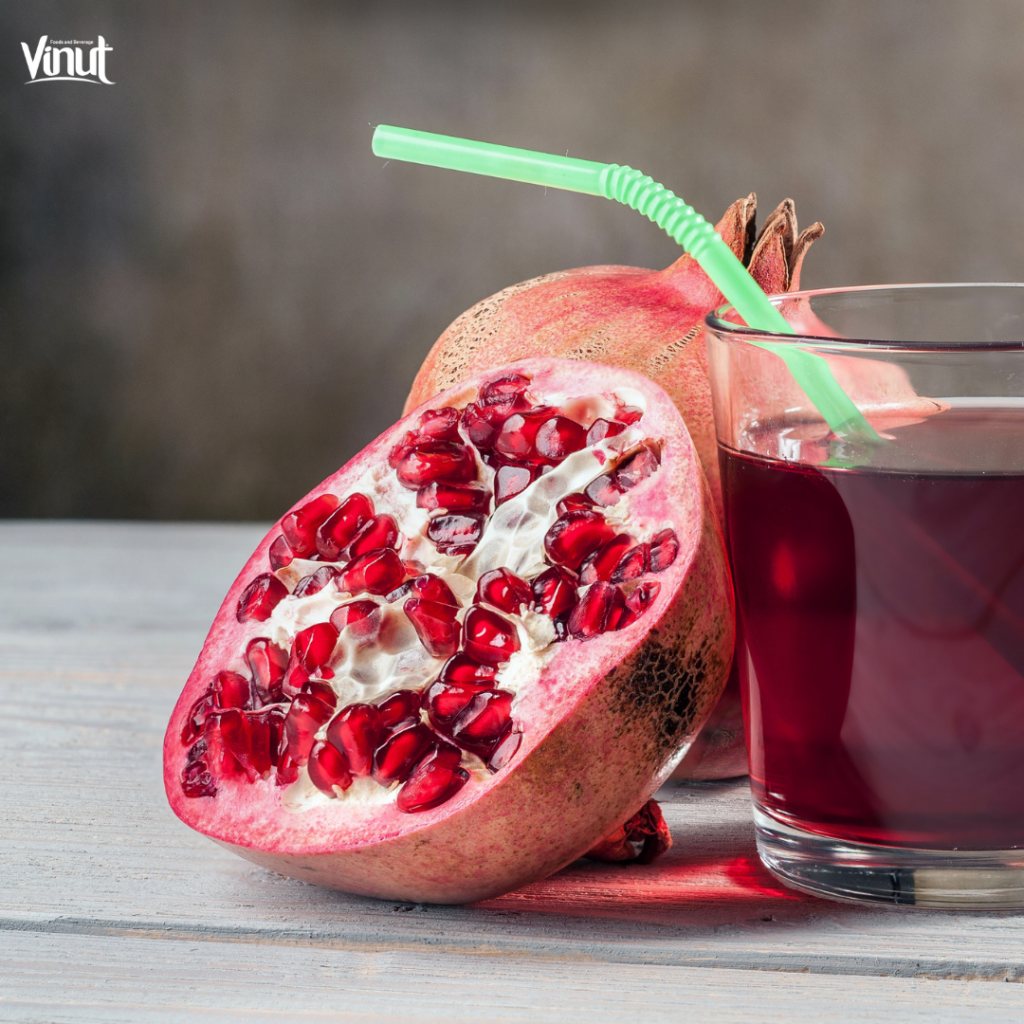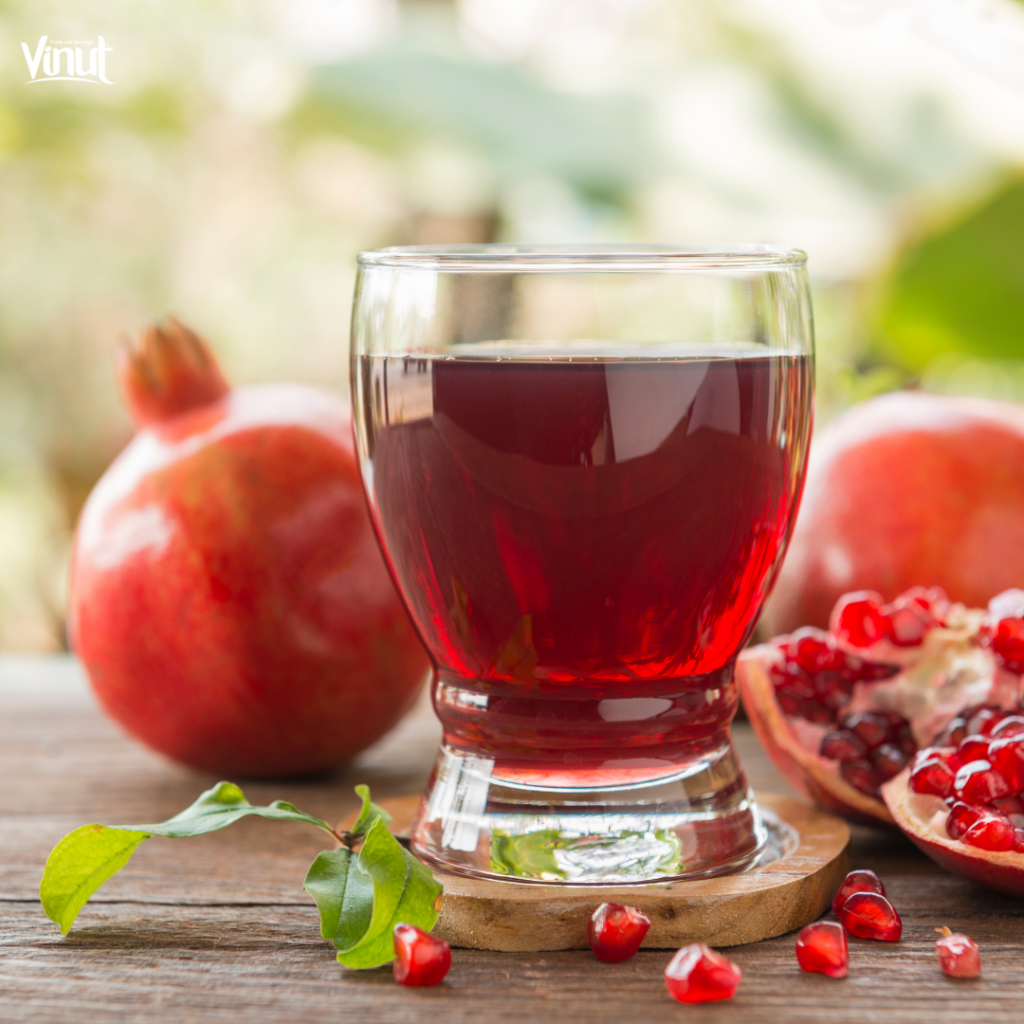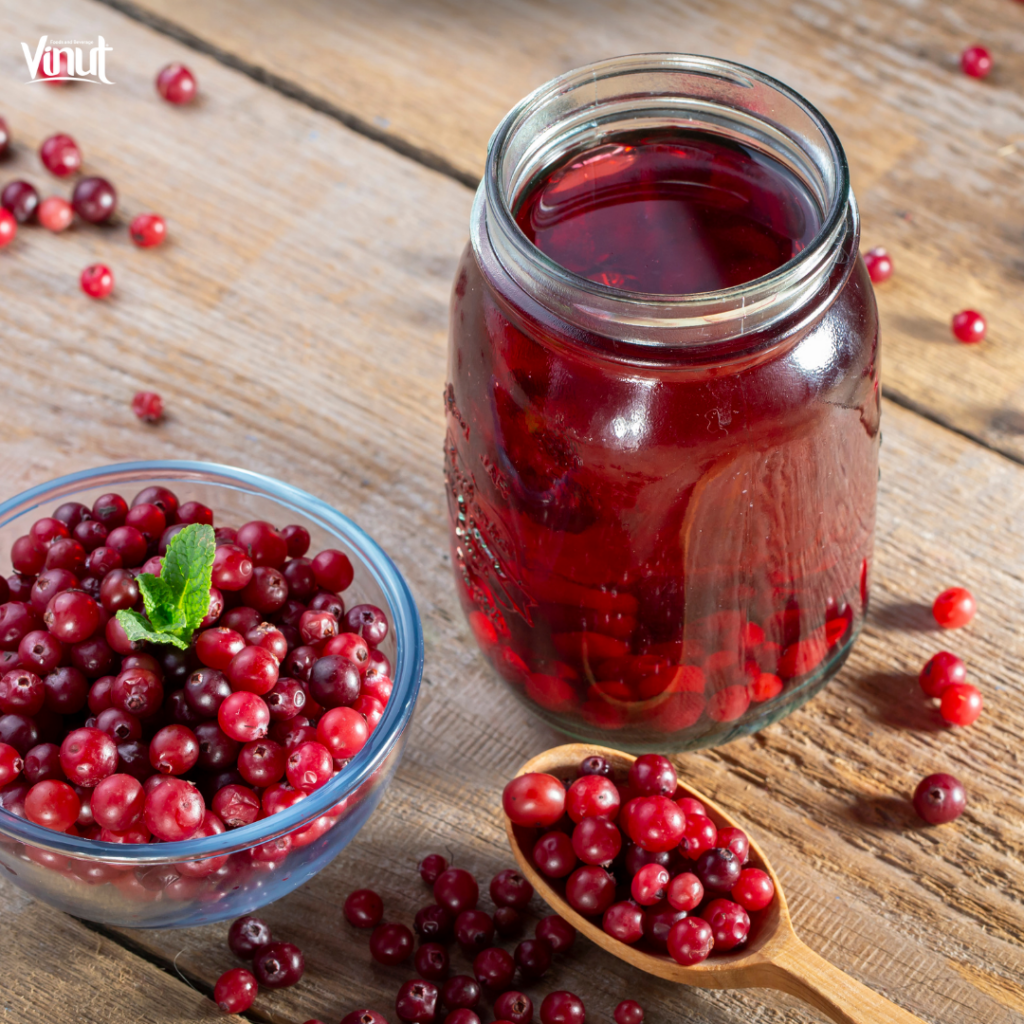
News
Best Time to Drink Pomegranate Juice

Pomegranate juice has long been celebrated as a superfood, packed with nutrients and antioxidants that offer numerous health benefits. Whether you’re looking to boost your immune system, improve your heart health, or simply enjoy a refreshing drink, pomegranate juice is a great choice. However, to maximize its benefits, you might be wondering: when is the best time to drink pomegranate juice? In this article, Cojo Cojo will explore the optimal times to consume this vibrant red juice, along with the reasons behind these recommendations.

Table of Contents
Nutritional Profile of Pomegranate Juice
Before we explore the best times to drink pomegranate juice, let’s take a closer look at what makes this juice so beneficial. Here’s a breakdown of its nutritional content:
Rich in Antioxidants
Pomegranate juice is loaded with antioxidants, particularly polyphenols like punicalagins and anthocyanins. These compounds help fight oxidative stress and inflammation, protecting your cells from damage and reducing the risk of chronic diseases.
Vitamins and Minerals
Pomegranate juice is a good source of several essential vitamins, including vitamin C, vitamin K, and some B vitamins. It also contains important minerals such as potassium, which supports heart health, and magnesium, which is vital for muscle and nerve function.
Low in Calories
Despite its rich flavor, pomegranate juice is relatively low in calories, making it an excellent choice for those looking to manage their weight while still enjoying a nutritious beverage.

Best Times to Drink Pomegranate Juice
The timing of when you drink pomegranate juice can influence how well your body absorbs its nutrients and how effectively you can reap its benefits. Below, we’ll explore some of the best times to enjoy pomegranate juice for optimal health.
Morning: A Refreshing Start to Your Day
Drinking pomegranate juice in the morning can be a fantastic way to kickstart your day. Here’s why:
Boosts Energy Levels
Starting your day with pomegranate juice can give you a natural energy boost. The natural sugars in the juice provide a quick source of energy, while the vitamins and antioxidants support overall vitality. Unlike coffee, which can lead to an energy crash later in the day, pomegranate juice offers sustained energy without the jitters.
Enhances Digestion
Drinking pomegranate juice on an empty stomach in the morning can also help improve digestion. The juice stimulates the production of digestive enzymes, which can aid in breaking down food and absorbing nutrients more efficiently throughout the day.

Mid-Morning: A Healthy Snack Alternative
If you’re prone to mid-morning hunger pangs, pomegranate juice can serve as a healthy snack alternative:
Keeps You Hydrated
Pomegranate juice is rich in water content, making it a hydrating option during mid-morning. Staying hydrated is crucial for maintaining energy levels and focus, especially during the busy hours of the morning.
Curbs Unhealthy Cravings
The natural sweetness of pomegranate juice can help satisfy your sweet tooth, making it less likely that you’ll reach for sugary snacks. Additionally, its fiber content can help you feel full, reducing the temptation to overeat later in the day.
Pre-Workout: Fuel for Your Exercise Routine
Pomegranate juice can be an excellent pre-workout drink for those looking to enhance their exercise performance:
Increases Stamina and Endurance
The natural sugars in pomegranate juice provide a quick source of energy that can fuel your workout. Moreover, the antioxidants in the juice help improve blood flow, delivering more oxygen and nutrients to your muscles. This can enhance stamina and endurance, allowing you to work out harder and longer.
Reduces Muscle Soreness
Studies have shown that the anti-inflammatory properties of pomegranate juice can help reduce muscle soreness and speed up recovery after exercise. Drinking it before your workout can prepare your muscles for the strain of exercise and reduce post-workout discomfort.

Post-Workout: Aiding in Recovery
Pomegranate juice isn’t just beneficial before exercise; it can also play a vital role in post-workout recovery:
Replenishes Electrolytes
After a strenuous workout, your body loses electrolytes through sweat. Pomegranate juice is a good source of potassium, an essential electrolyte that helps maintain fluid balance and supports muscle function. Drinking it after exercise can help replenish lost electrolytes and prevent dehydration.
Speeds Up Muscle Recovery
The antioxidants in pomegranate juice, particularly polyphenols, have been shown to reduce oxidative damage in muscles after exercise. This can speed up recovery time and reduce muscle soreness, allowing you to get back to your workout routine more quickly.
Afternoon: A Refreshing Pick-Me-Up
The afternoon slump is a common experience for many people. Drinking pomegranate juice during this time can help you power through the rest of your day:
Improves Mental Clarity
Pomegranate juice has been found to improve cognitive function, thanks to its rich antioxidant content. Drinking it in the afternoon can help improve focus, mental clarity, and concentration, making it easier to tackle your afternoon tasks.
Combats Fatigue
The natural sugars in pomegranate juice can provide a quick energy boost, helping to combat afternoon fatigue. Additionally, its hydrating properties can help you stay alert and refreshed as the day progresses.

Evening: Promoting Relaxation and Better Sleep
While it might seem counterintuitive to drink juice in the evening, pomegranate juice can actually be beneficial at this time as well:
Promotes Relaxation
Pomegranate juice contains magnesium, a mineral known for its calming effects. Drinking it in the evening can help relax your muscles and reduce stress, promoting a sense of calm before bedtime.
Supports Sleep Quality
The antioxidants in pomegranate juice can also support better sleep by reducing oxidative stress and inflammation, which can interfere with sleep patterns. Consuming a small amount of pomegranate juice in the evening might help improve the quality of your sleep.
Incorporating Pomegranate Juice into Your Daily Routine
Now that we’ve explored the best times to drink pomegranate juice, let’s discuss how you can incorporate it into your daily routine for maximum benefits.
Morning Ritual
Start your day with a glass of pomegranate juice, either on its own or mixed into a smoothie. This can be part of a healthy breakfast that sets a positive tone for the rest of the day. Consider combining it with other nutrient-dense foods like oats, yogurt, or chia seeds.
Mid-Morning Snack
Keep a small bottle of pomegranate juice at your desk or in your bag for a quick and healthy mid-morning snack. Pair it with a handful of nuts or a piece of fruit to create a balanced snack that will keep you energized until lunch.
Pre-Workout Drink
Make pomegranate juice your go-to pre-workout drink. Drink a glass about 30 minutes before exercising to boost your energy levels and improve your performance. You can also add it to a protein shake for added nutrients.
Post-Workout Recovery
After your workout, enjoy a glass of pomegranate juice to help with recovery. You can mix it with water or coconut water to create a hydrating recovery drink that replenishes electrolytes and supports muscle repair.
Afternoon Refresher
Instead of reaching for coffee or sugary snacks during the afternoon slump, opt for a glass of pomegranate juice. Its natural sweetness and refreshing flavor will help you power through the rest of the day without the crash associated with caffeine or sugar.
Evening Relaxation
Wind down your day with a small glass of pomegranate juice. You can enjoy it on its own or mix it with warm water to create a soothing bedtime beverage that promotes relaxation and better sleep.

Expert Insights on Pomegranate Juice Consumption
To provide you with the most accurate information, I consulted with nutrition experts to gather their insights on the best times to drink pomegranate juice:
Nutritionist’s Perspective
According to nutritionists, the best time to drink pomegranate juice depends on your individual health goals. For those looking to improve digestion and boost energy levels, the morning is an ideal time. On the other hand, athletes and fitness enthusiasts may benefit more from drinking it before or after exercise.
Doctor’s Advice
Doctors recommend that people with specific health conditions, such as diabetes or kidney disease, should consult with their healthcare provider before adding pomegranate juice to their routine. While the juice offers many health benefits, its natural sugars and potassium content may not be suitable for everyone.
Common Misconceptions About Pomegranate Juice
As with any popular health trend, there are several misconceptions about pomegranate juice that need to be addressed:
Pomegranate Juice and Weight Loss
Some people believe that drinking pomegranate juice can lead to weight loss. While it can be part of a healthy diet, it’s not a magic solution for weight loss. Pomegranate juice is relatively low in calories, but it still contains natural sugars, so it’s important to consume it in moderation.
Pomegranate Juice as a Cure-All
While pomegranate juice offers many health benefits, it’s not a cure-all. It’s important to maintain a balanced diet and healthy lifestyle to achieve optimal health. Drinking pomegranate juice alone won’t solve all health problems, but it can be a valuable addition to a well-rounded diet.

FAQs About Pomegranate Juice
1. Can you drink pomegranate juice every day?
Yes, you can drink pomegranate juice every day. It’s packed with nutrients and antioxidants that offer numerous health benefits. However, it’s important to consume it in moderation, as it contains natural sugars that can add up in your daily calorie intake.
2. Is it better to drink pomegranate juice with or without food?
Pomegranate juice can be consumed with or without food. Drinking it on an empty stomach in the morning can aid in digestion, while consuming it with meals can enhance the absorption of its nutrients.
3. Can pomegranate juice interact with medications?
Yes, pomegranate juice can interact with certain medications, particularly those that are metabolized by the liver. If you’re on medication, it’s important to consult with your healthcare provider before adding pomegranate juice to your routine.
4. How much pomegranate juice should you drink per day?
The recommended daily intake of pomegranate juice varies depending on your individual health goals and needs. Generally, 4-8 ounces per day is a good amount to enjoy its benefits without overconsumption.
5. Is fresh pomegranate juice better than store-bought?
Fresh pomegranate juice is typically more nutrient-dense than store-bought versions, as it doesn’t contain added sugars or preservatives. If possible, opt for fresh juice or a high-quality store-bought option with no added sugars.
